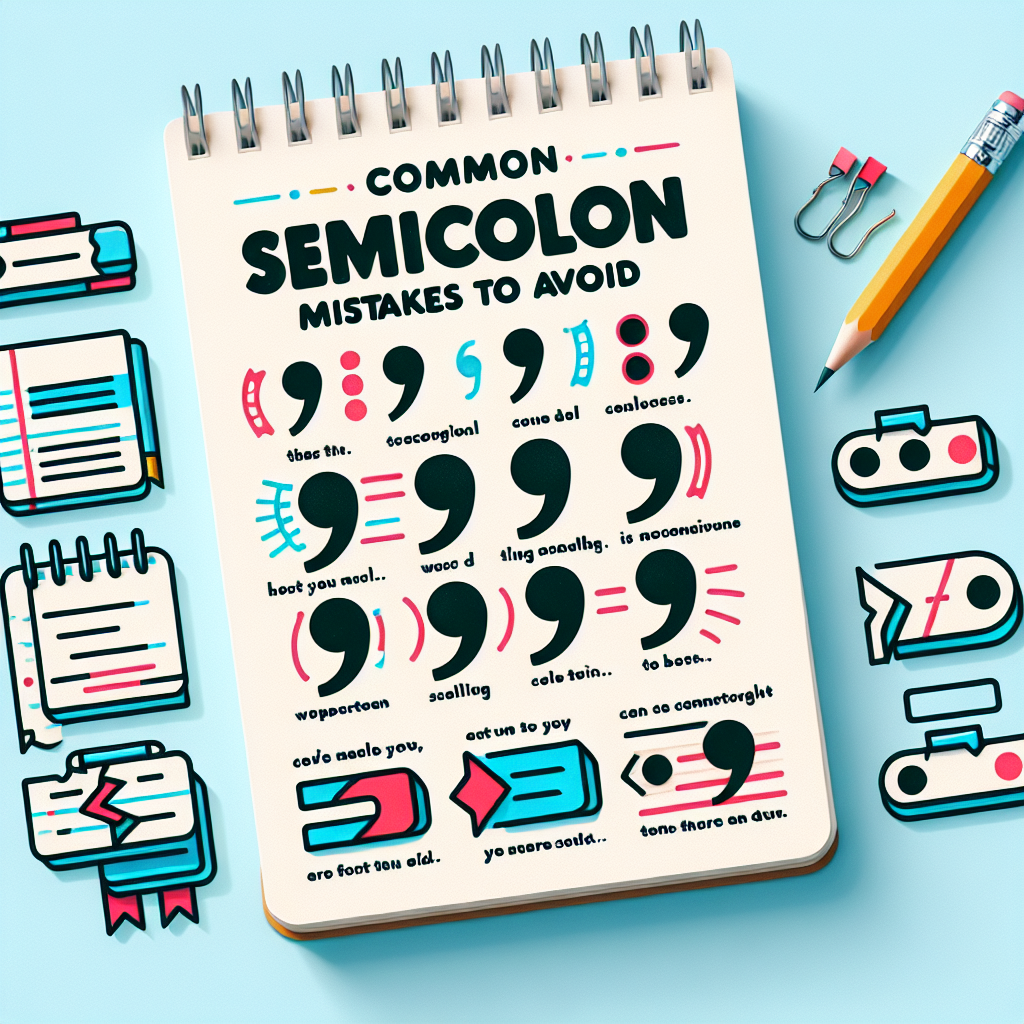Common Semicolon Mistakes to Avoid
Semicolons can be a tricky punctuation mark to master; many people make mistakes when using them. Semicolons, when used correctly, can add clarity and sophistication to your writing; however, when used incorrectly, they can cause confusion and disrupt the flow of your prose.
Overusing Semicolons
One common mistake that writers make is overusing semicolons; this can make your writing look cluttered and difficult to follow. Semicolons should be used judiciously; only use them when you want to separate two independent clauses that are closely related.
Incorrect:
She went to the store; bought some groceries; and walked home.
Correct:
She went to the store and bought some groceries; then walked home.
Using Semicolons instead of Commas
Another common mistake is using semicolons in place of commas. Semicolons are not interchangeable with commas; they have different functions in a sentence. Semicolons are used to separate independent clauses that are closely related, while commas are used to separate items in a list or to separate dependent clauses from independent clauses.
Incorrect:
He studies English literature; dreams of becoming a writer.
Correct:
He studies English literature, but he dreams of becoming a writer.
Not Capitalizing the Word After a Semicolon
When using a semicolon to separate two independent clauses, you should capitalize the word that follows the semicolon. This is a common mistake that can make your writing look unprofessional.
Incorrect:
I enjoy reading; i find it relaxing.
Correct:
I enjoy reading; I find it relaxing.
Placing Semicolons Outside of Quotation Marks
When using semicolons in a sentence that contains quotation marks, make sure to place the semicolon inside the quotation marks. Placing it outside the quotation marks is incorrect and can change the meaning of your sentence.
Incorrect:
She said, “I love you”; but I didn’t believe her.
Correct:
She said, “I love you;” but I didn’t believe her.
Mastering the proper use of semicolons takes practice, but avoiding these common mistakes will help you improve your writing and communicate more effectively. Remember, when in doubt, it’s better to use a comma or period than to misuse a semicolon.
For more tips on improving your writing skills, check out Edit Mojo’s blog post on How to Improve Your Writing Skills.
It’s important to always strive for clear and concise writing, ensuring your audience understands your message with ease.
#Common #semicolon #mistakes #avoid
